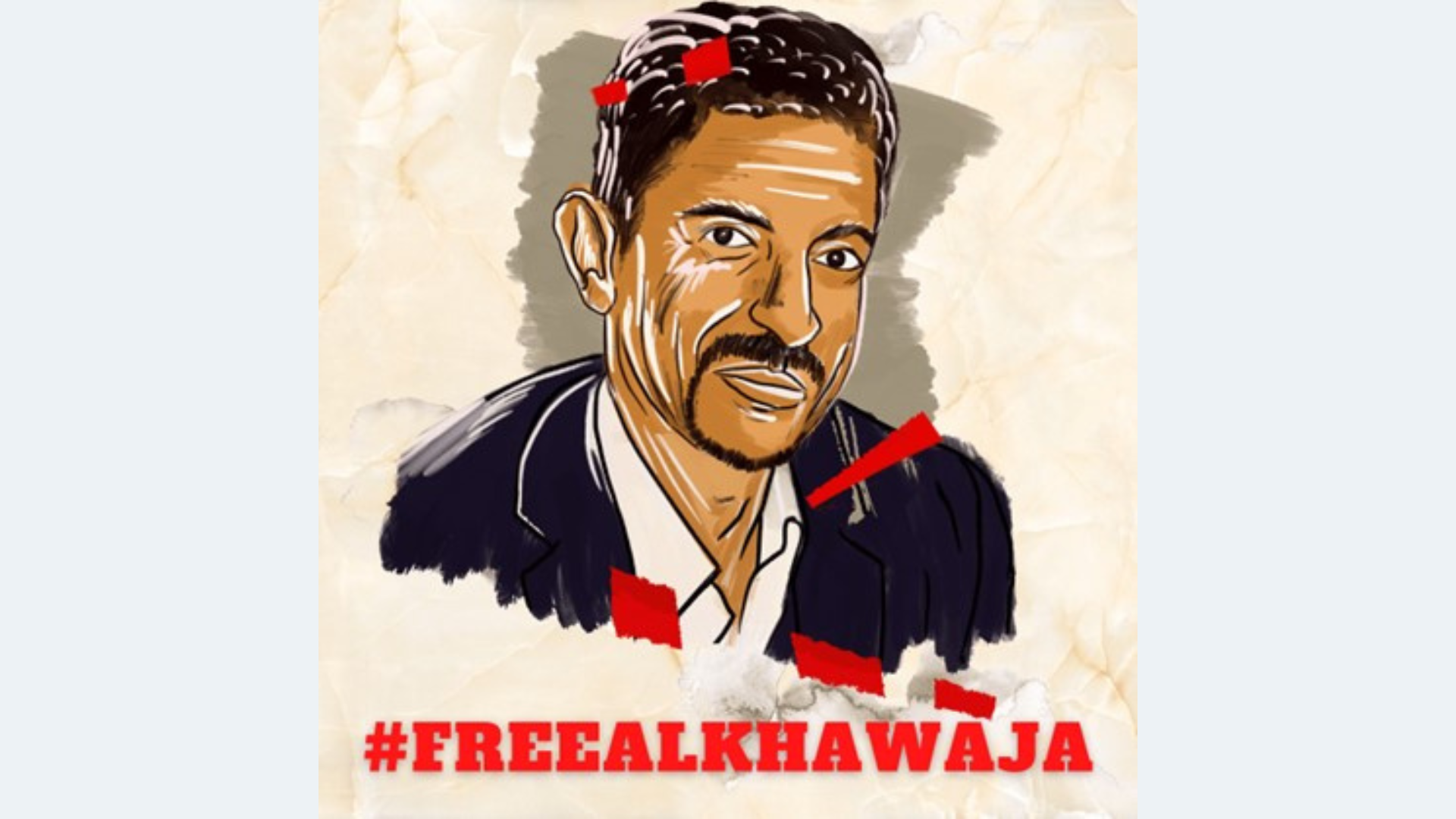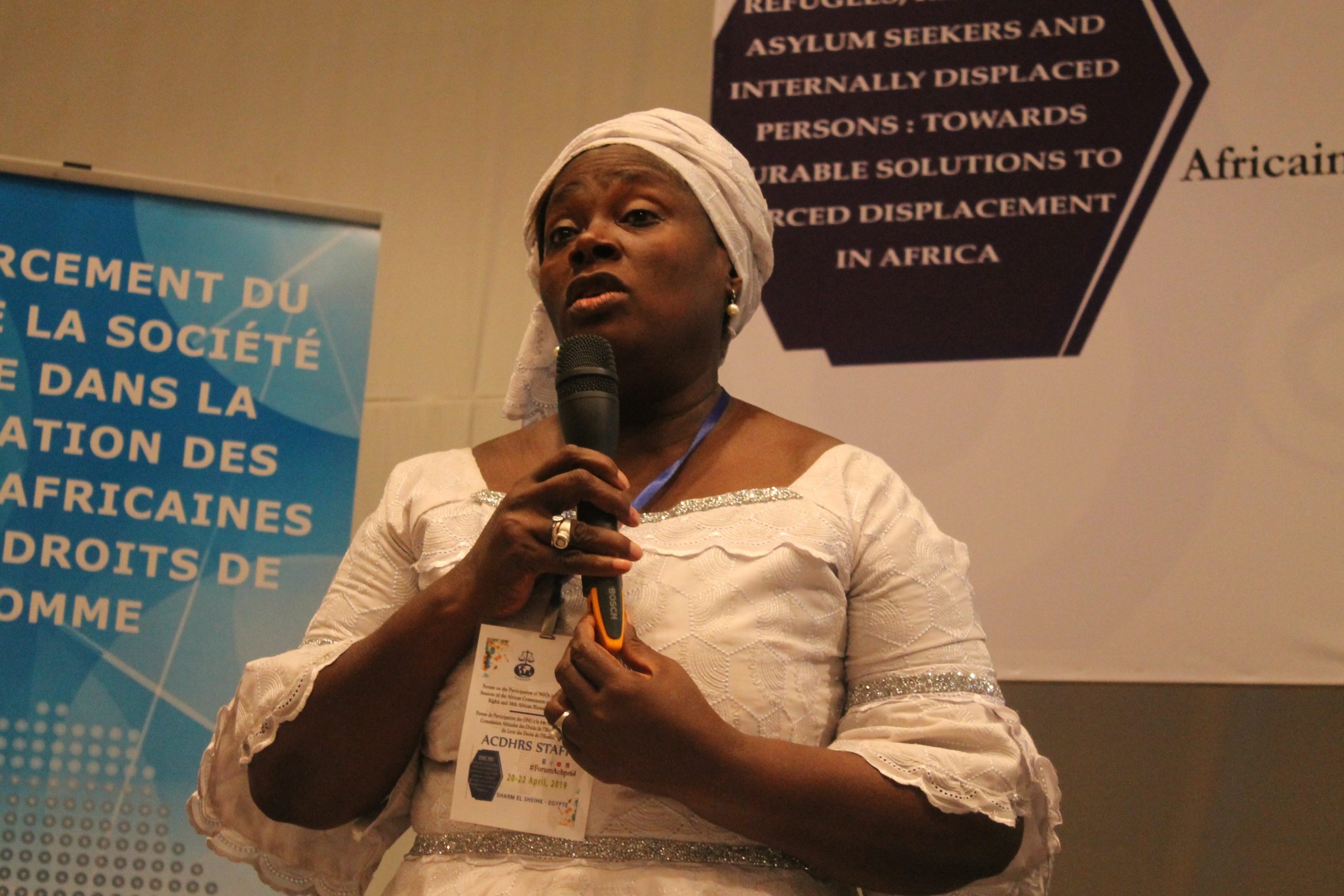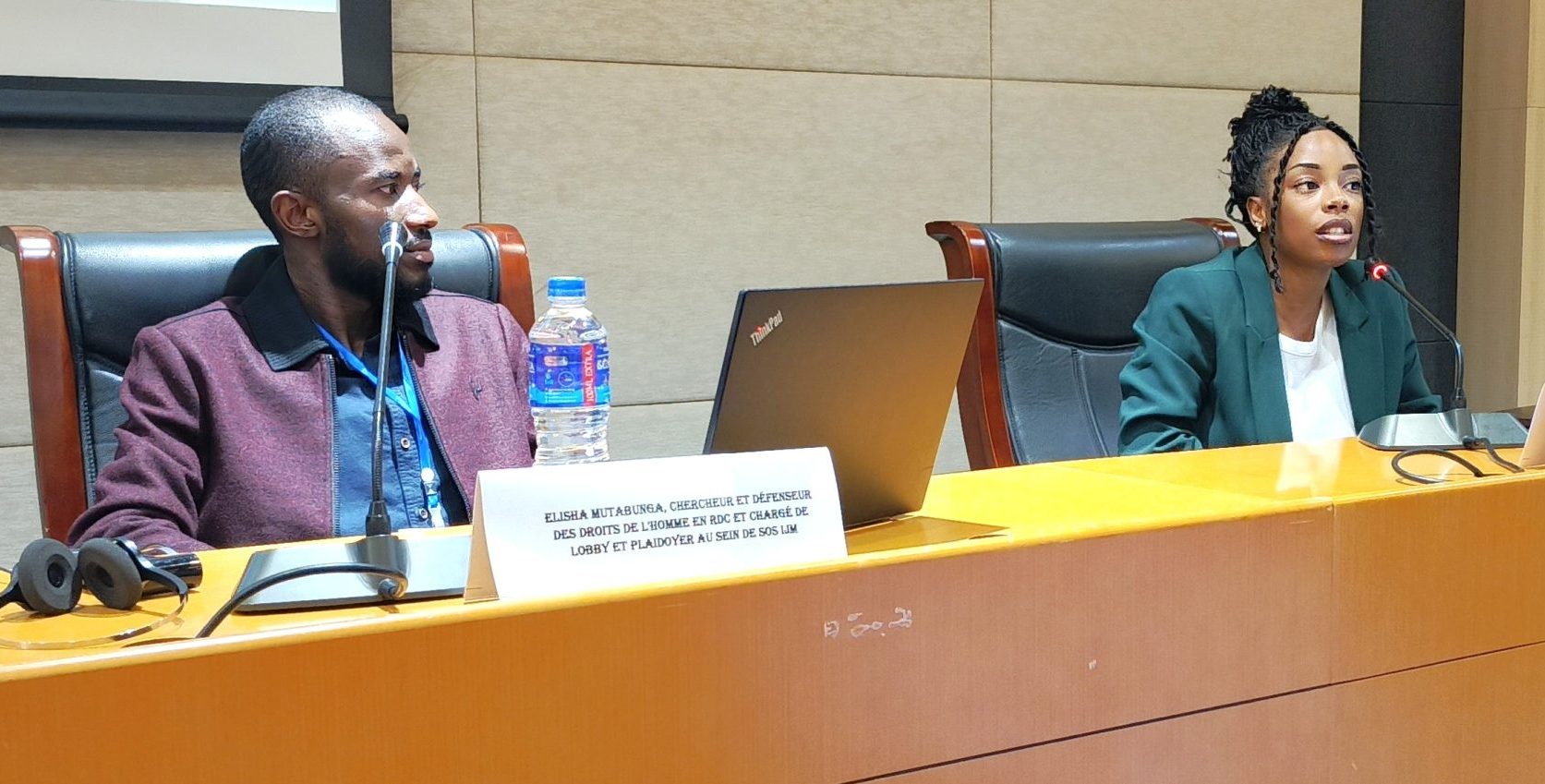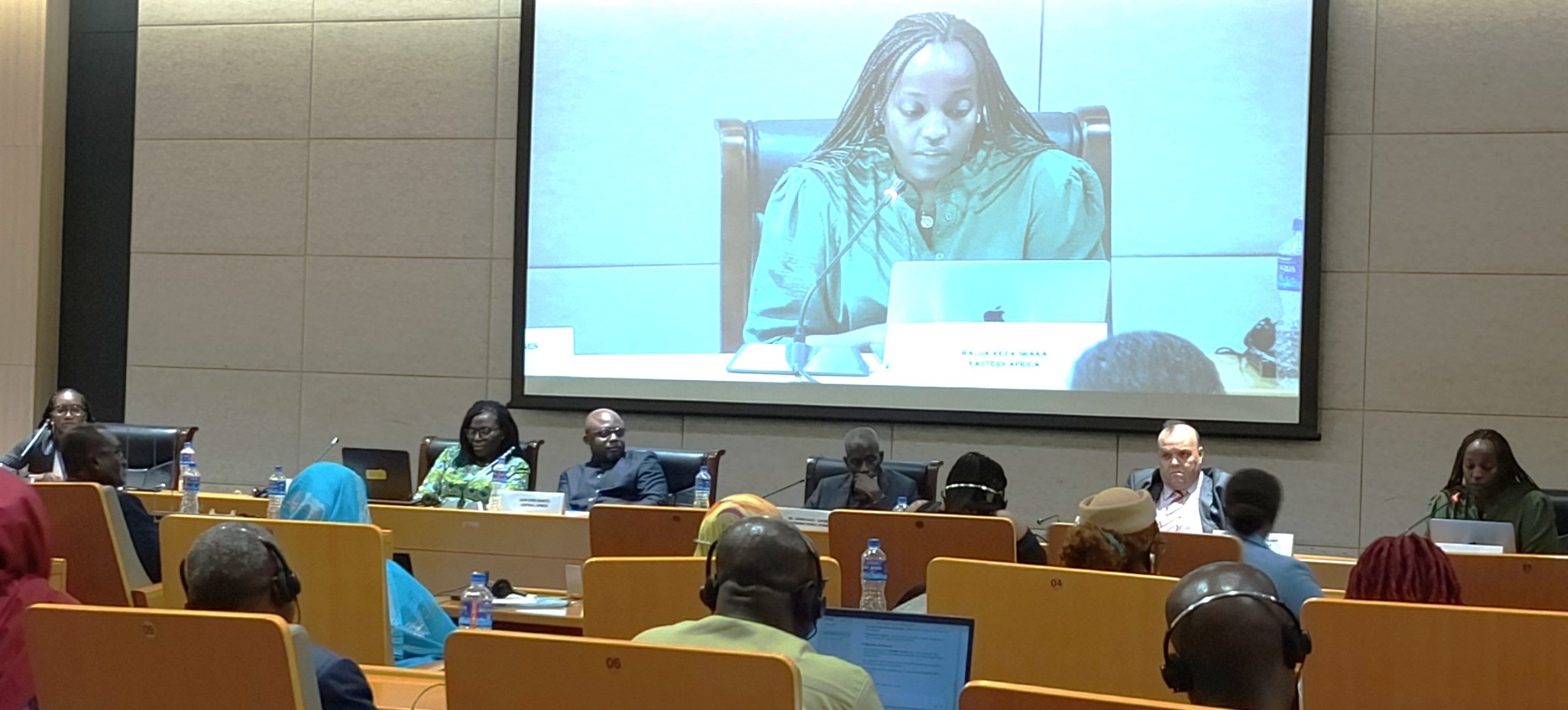The statement on behalf of the NGO Forum was delivered after three challenging days for NGOs who took part in the activities of the Forum. Hannah Forster, executive director of the ACDHRS, began her statement by calling out the government of Egypt in relation to the number of defenders who were denied visas and therefore were unable to participate in the ordinary session as well as the NGO Forum. ‘Furthermore, some of those who came to this beautiful land faced prohibitive rates which curtailed their engagement and sharing of experiences usually done in side events’ she continued.
She took the time to summarise the work developed during the session of the NGO Forum especially around this year’s theme of the African Union ‘Refugees, Returnees, Asylum Seekers and Internally Displaced Persons: Towards durable solutions to Forced Displacement’. Several panels were organised around this theme including a panel about civic space and the challenges faced by defenders working to protect the right of people on the move, a panel in which the UN Special Rapporteurs on human rights defenders and freedom of assembly and association took part.
Forster also did not fail to mention the laborious conditions surrounding the work of defenders in Africa. ‘The systematic harassment and targeting of human rights defenders in many of our countries was also reported. The closing of civic space remained on the agenda with the existence of restrictive legislation that pays little or no attention to neither the African Commission’s standards nor their own constitutions. Prosecution of several human rights defenders on trumped up charges, leading to judicial harassment into the work of independent human rights organisations continues’ she said.
She also pointed out ‘the hostile environment characterising the hazardous situation of human rights defenders, not to mention the rate at which reprisals are on the increase in many States’. She also highlighted the concern of civil society regarding specific laws impeding the work of defenders. ‘The increase of counter terrorism bills restricting association and the work of human rights defenders to curb the rise in peaceful assembly is also a cause for concern.’
While there are still remaining challenges to the protection of human rights in Africa, the statement also shed a light on significant advancements made by States for a better protection and implementation of these rights. ‘These include the adoption of an Access to Information Law in Ghana; the positive signs of new leadership in Ethiopia where several women have been appointed to key decision-making positions and the lifting of the state of emergency; and the conducting of peaceful elections in Senegal’ declared Forster.
The Forum called on the African Commission to urge States to integrate the Guidelines developed for the preparation of State reports to ensure they submit their State reports on time.
In conclusion, the Forum paid tribute to the four Commissioners ending their mandate this year namely Honourable Commissioners Soyata Maiga, the current Chairperson (2007-2019); Lucy Asuagbor (2010-2019); Yeung Kam John Yeung Sik Yeun (2007-2019) and Lawrence Mute (2013-2019) respectively.




